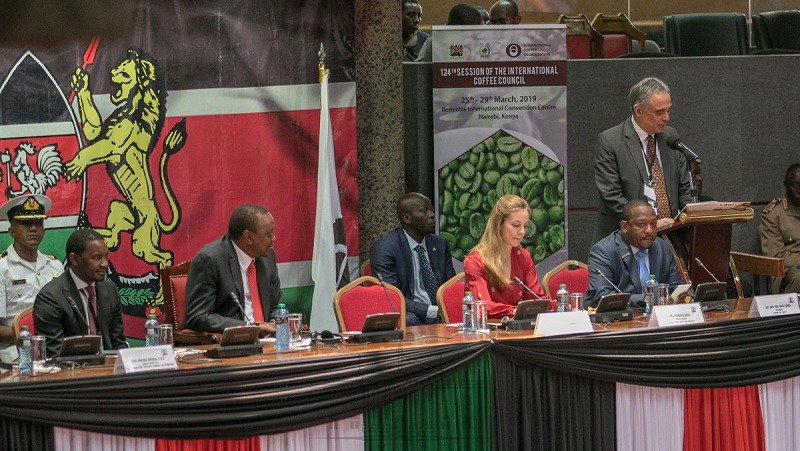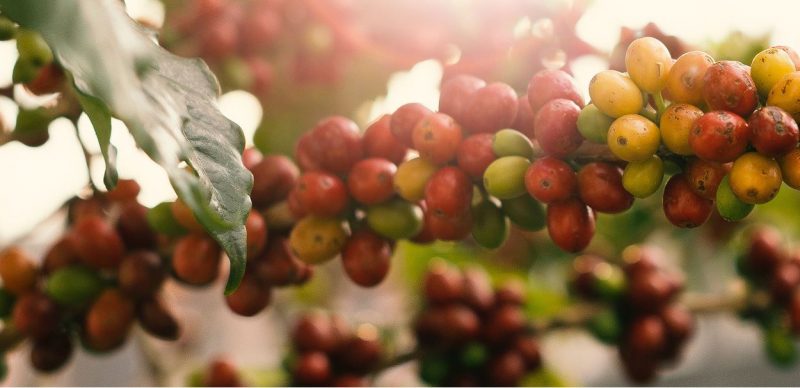The International Coffee Organisation (ICO) council call for an immediate action to be taken on the historically low international coffee price.
Through a declaration from the World Coffee Producers forum consortium being held in Nairobi on how to improve standards and shorten the distance between farmer, roaster, barista and consumer, “The current social and economic crisis created by extremely low international coffee prices has come to a point where the coffee value chain – as a whole – cannot just continue talking about it, without taking serious and immediate action.
Kenya is hosting the 124th Session of the International Coffee Council (ICO) meeting to discuss challenges facing the sub-sector. This is the first time since ICO, a body that brings together exporting and importing countries to address challenges facing the commodity, was established in 1963.
ICO member governments represent 98 percent of global coffee production and 67 percent of global consumption. The organization had 50 members as of June 2018.
READ:
- Rwanda’s Ngororero Coffee Awarded “Best of the Best” and “Coffee Lover’s Choice”
- EAAGADS Director Frances Holliday Resigns
According to the International Coffee Organization ICO, about 25 million families -mostly smallholders- produce coffee in the world. Today, most of them cannot even cover their production costs and many of them cannot make a living for themselves and their families.
The world drinks 1.4 billion cups of coffee every day (*) and consumers pay very high prices for them (from $3.12 in the U.S. to $4.60 in Shanghai to $ 6.24 in Copenhagen in 2018 (**)). In many cases, those prices are reached with the promise of the coffee being sustainable. However, sustainability promise usually focuses only on two of its three aspects: environmental and social. Economic sustainability, the income of the farmers itself, has been neglected by the coffee value chain under the premise that “the market is the market” and we need to let it rule.
Today’s “C” futures contract was created as the price reference for a basket of mild arabica coffees of similar quality known as “Centrals”. Today, with several changes introduced over time, it is widely acknowledged that the “C” futures contract based price does not cover production costs for most producers due to several factors, including speculation by hedge funds that do not understand or care about coffee.

In 1982, the price of coffee fluctuated between US$1.18 and US$1.41 in the international market and a cup of coffee averaged US$ 1.10 in the United States; in 2018, the average price of a pound of arabica coffee in the international market averaged US$1.01. Furthermore, on March 22nd, 2019, the price closed below US$0.95. Coffee producers have lost more than 80% of their purchase capacity in the last few decades.
The current pauperization process of coffee producers is destroying the very social fabric in the rural areas of more than 40 countries in Africa, Asia and Latin America, leading to increased criminality in producing nations, more poverty in the cities, and massive migrations towards the United States and Europe. In some countries, the current crisis has become an incentive to shift to illegal crops because farmers cannot make a living from coffee alone.
Quality and availability are also threatened. Producers who stay in coffee will not be able to afford the proper care of their farms and their coffee which leads to improper fertilization and care of the trees affects the quality and deprives consumers the diversity that they enjoy today. Adaptation and mitigation of the effects of climate change are other burdens that fall on the shoulders of producers.
Producing countries and other players are concerned that today’s “C” contract is not the right price discovery mechanism and that by allowing the impoverishment of producers, the coffee industry is compromising its own future.
The current economic sustainability crisis of coffee producers needs to be addressed immediately before it becomes a humanitarian crisis. An approach based on the principle of co-responsibility and total transparency must be implemented to ensure that all the links of the value chain are profitable and healthy. Even if coffee results in a great beverage, if it does so at the cost of the dignity, value or well being of the people and the land involves, it cannot truly be a sustainable coffee. ICE cannot be absent in this discussion.
Coffee farmers from all over the world have been reaching out for years to the rest of the value chain hoping for a collective, constructive and realistic approach to secure the economic sustainability of producers. The response -unfortunately- has been very weak.
When it comes to economic sustainability of coffee producers, it is clear:
Other organisations listed on the declaration include Agence des Cafés Robusta d’Afrique et Madagascar, African Fine Coffees Association, Asociación Mexicana de la Cadena del Café, Asociación Nacional del Café Guatemala, Brazilian Specialty Coffees Association, Conselho Nacional do Café, Coalición Nacional de Organizaciones de Productores de Café, Inter-African Coffee Organization, India Coffee Trust, Promecafe, Specialty Coffee Association United States, and Vietnam Coffee and Cocoa Association.
DECLARATION OF THE COORDINATION GROUP OF THE WORLD COFFEE PRODUCERS FORUM
NAIROBI, KENYA. MARCH 26TH, 2019




